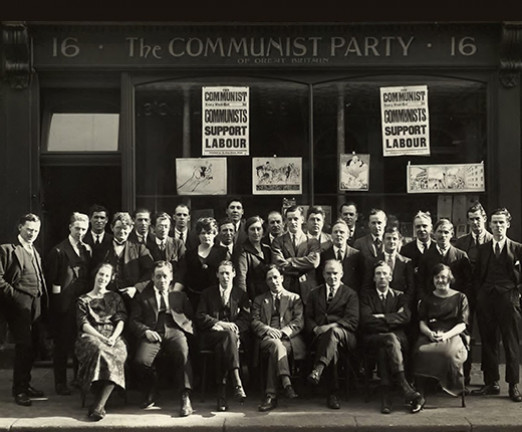
Communisms and the Cold War, 1944–1986

Records of the Communist Party of Great Britain's International Department, International Committee, and external relations
Records of the CPGB's International Department or otherwise relating to its international functions are of particular interest given the unique significance such associations had for a communist party...With the provision of online access to the archives, one may be confident that the resurgence of historical interest will continue.University of Manchester
Access the full collection
Access the full archive of Communisms and the Cold War, 1944–1986.
Institutional Free Trial
Start your free trialRegister for a free 30-day trial of Communisms and the Cold War, 1944–1986, for your institution.
Institutional Sales
Visit Sales PagesellFor more information on institutional access, visit our sales page.
Already have a license? Sign in.
Learn how the Soviet Union, China, and Yugoslavia vied for the loyalty of Western communists

This collection contains reports and other records compiled by the Communist Party of Great Britain's (CPGB) International Department between 1944 and 1986. This periodisation begins immediately after the dissolution of the Communist International (Comintern) and ends shortly before the collapse of the Soviet Union.
The majority of the documents cover the Sino-Soviet split and the Chinese-Indian disputes of the 1960s and 1970s. There are also materials relating to Soviet satellite states in Eastern Europe, the left in Western Europe, and anti-colonial movements in the developing world. They provide a fascinating insight into the competing power blocs which arose throughout the communist world during the Cold War and how British communists reacted to the resulting, internecine disputes.
The collection is accompanied by three contextual essays written by Professor Kevin Morgan, a senior academic at the University of Manchester.
Contents
Communisms and the Cold War, 1944–1986...
Records of the Communist Party of Great Britain's International Department, International Committee, and external relations
Discover_1579262607.jpg)
Highlights

Licensed to access Browderism and the Communist Party of the United States of America (CPUSA), 1944–1945
Earl Browder was the leader of the CPUSA during the Second World War. Under his stewardship the party adopted a position of "infinite class collaboration." These documents include a public letter written by French communist Jacques Duclos repudiating such "deviationism".

Licensed to access Chinese criticism of "Khrushchev's revisionism", 1965
This document contains bellicose editorials published by two Chinese newspapers — Renmin Ribao (People's Daily) and Hongqi (Red Flag) — at the height of the Sino-Soviet split. Both condemn the Soviet Union's embrace of de-Stalinisation and "peaceful coexistence".

Licensed to access Reactions to the Soviet invasion of Czechoslovakia, 1968
In August 1968 the Soviet Union and four other Warsaw Pact nations invaded Czechoslovakia to quash the liberal reforms enacted by Alexander Dubček's government. These papers detail the CPGB's response to the invasion and ensuing crisis.

Licensed to access Materials on the 1976 Conference of Communist and Workers Parties of Europe
The Conference of Communist and Workers' Parties of Europe was held in East Berlin from 29th–30th June, 1976. These materials highlight the increasing influence of so-called "Eurocommunism", a revisionist trend within the Western left.
Insights
As was the case with other Western communist parties, the CPGB’s International Department played an important — near overbearing role — in both the internal and external life of the organisation.
Professor Kevin Morgan observes that, even after the formal dissolution of the Communist International (Comintern) in 1943, there was still “no doubting either the significance of communism as an international movement, the critical position that Britain held in its conception of world affairs, or the close interrelationship between them.”
Since the Russian revolution in 1917 the Soviet Union had been the acknowledged leader of the communist movement. But its influence came under increasing scrutiny during the Cold War.
This challenge manifested in three waves. In 1948 Yugoslavia was expelled from the Communist Information Bureau (Cominform) for perceived disloyalty to Stalin. Then there was the Sino-Soviet split, when doctrinal disputes arose between the Soviet Union and Mao’s China. This was subsequently followed by the emergence of Eurocommunism in the West. This movement sought to undermine the authority of the Soviet Union and the Communist Party of the Soviet Union (CPSU).
- Many of the documents detail the attempts of the CPGB leadership to formulate a doctrinally correct position on these disputes.
- Meetings with various communist leaders are covered in detail, as are the proceedings of international conferences involving communist parties.
Unlock Historical Research for Your Institution
Provide your students and researchers with direct access to unique primary sources.
Related Media


The Departments of the Communist Party of Great Britain: A Detailed Guide Contextual Essays








